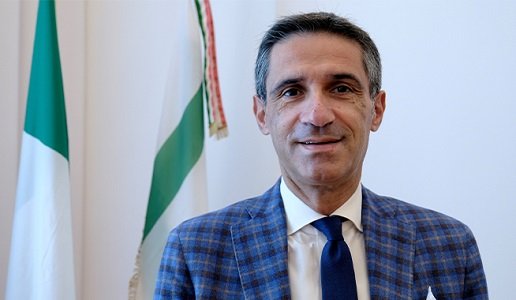After seeing the position of Novella Pastorelli, the President of the Consortium for the Protection of Primitivo di Manduria, we interview today Donato Pentassuglia, Regional Agriculture Councillor, and Michele Schifone oenologist and owner of the Cicella masseria winery.
We asked them the same questions, the ones Pastorelli answered yesterday. Let us see their responses in parallel.
DoctorWine: Primitivo di Manduria is a grape variety that represents Apulian, Italian and international value. It is probably the most iconic in Apulia, what are the reasons for its success in Italy and abroad and what distinguishes it from other valuable native varieties?
Donato Pentassuglia Regional Councillor for Agriculture in Puglia: The success was determined by the product with its goodness, authenticity and also health value. Add to this the territorial typification that has historically characterized its environment in an eco-sustainable balance. All this has allowed Primitivo di Manduria to become a true excellence in the world.

Michele Schifone winemaker and owner of masseria Cicella: Its notoriety stems from fairly unique organoleptic characteristics that have favorably impressed consumers around the world, particularly its full-bodiedness (extracts) balanced with alcohol, “soft” tannins, with obvious hints of ripe fruit. Clearly said characteristics are enhanced with the right balance of land and cultivation system.
Producers of the “dry” Manduria are deciding to seek recognition as a DOCG, thus joining it with the “natural sweet,” already a DOCG. However, there appears to be no contemporary demand for recognition of a spillover DOC, leaving this function to the Primitivo del Salento igt, which affects a much larger quantity of producers than Manduria. Any thoughts you have on this?
DP. The assessor must help the processes of protection and enhancement within the framework of the stipulated regulations. It is up to production to determine marketing and market choices with technical and sustainability assessments.
MS. Docg is the highest quality recognition of a wine. Certainly this would be an important step, I believe that said step cannot take place without prior zoning that safeguards those characteristics listed above. In other words, each bottle bearing such recognition must retain those unique characteristics that cannot be obtained in the entire territory of the current DOC.
Stock volumes and lowering costs were until recently the main concerns of producers in the area; the arrival of blight has turned everything upside down. The 2023 vintage hangs in the balance, will the aforementioned inventories save the wineries’ budgets or are there interventions to support producers?
DP. The issue of inventory is there and is under the lens in that more wine is produced than is consumed and bottled. Still very little compared to production. Downy mildew has resulted in extensive damage to this year’s yields, and we hope that damage to vines will be limited for upcoming vintages. Interventions are being discussed despite bureaucracy and little money. But the Apulia Region has asked both the minister and Brussels to pay attention to both interventions.

MS. The current vintage certainly is the most difficult in the last 30 years because of unfavorable weather conditions. Certainly the costs of vineyard management have increased, and we will also have a high percentage less production, which added to last year’s production could cancel out an entire year’s production. This can rebalance the market.
Does the region’s resolution on reducing grape yields for PGI support producers?
DP. I think it is a very important and shared measure that is being worked on and is being taken as a reference by other regions. Added to this is the issue of controls that we are focusing on and developing.
MS. I think the proposal of the current Assessor is very interesting, and there is a comprehensive view of the entire wine sector. Specifically, the Primitivo di Manduria PDO suffers from a kind of competition with the Igp Primitivo, just think that the PDO has a yield of 90 quintals per hectare while the Igp Puglia of 220. With such a yield we certainly get wines that do not reflect those typical characteristics already mentioned, damaging the good name of Primitivo in world markets. The proposal to lower and equalize yields for all PGIs (Puglia, Salento and Tarantino) to 120 quintals per hectare is a good compromise to obtain wines that will enhance the organoleptic characteristics that have made Primitivo famous throughout the world. My personal wish is that this draft becomes applicable immediately.



